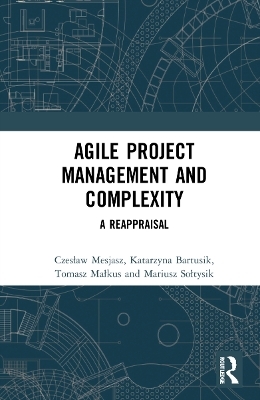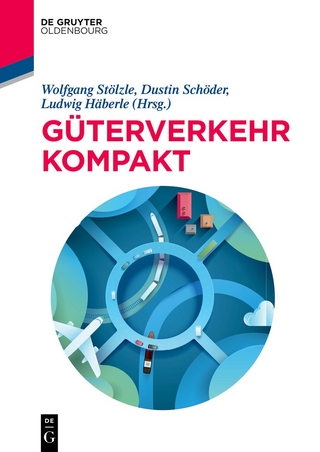
Agile Project Management and Complexity
Routledge (Verlag)
978-1-032-00654-3 (ISBN)
This research monograph presents an inter-disciplinary study of the impact, and current status, of applications of complexity-related concepts in the early stages of development of Agile Project Management (APM). The results serve as an introduction for exploring more profound relations between complexity-related ideas and APM in the future.
The increasing complexity of software projects and their environment in the 1990s constituted the main determinants of the development of the family of methodological frameworks called Agile Project Management. Development of APM has been shaped by a broadly defined area of research called complexity science or complexity theory based on complex adaptive systems (CAS) and on their characteristics: Complexity, chaos, the edge of chaos, emerging properties, non-linearity, self-organization, etc. In the 21st century, due to the expansion of Agile beyond software development, the challenges deriving from the complexity of projects and the environment are even more urgent or compelling. Such phenomena demand more profound inter- and multi-disciplinary studies. This book examines the impact of applications of complexity-related ideas deriving from intuitive complexity and from complexity science in the early stages of development of the Agile methodological frameworks in project management and considers the current status of those applications. It questions the usefulness of those applications for the practice and theory of APM, and then proposes a conceptual framework for further theoretical studies and several ways of improvement and refinement of the Agile Project Management necessary to deal with broadly defined complexity in project management.
Requiring a medium-level knowledge of complexity studies and knowledge of project management, this book is written for the research community studying the links between the various methodological frameworks included in APM and complexity-related ideas. It will also be interesting for studies of the impact of complexity on modern management, and for master’s students on IT and management courses.
Czesław Mesjasz is an Associate Professor within the Management Process Department of the Cracow University of Economics, Poland. Katarzyna Bartusik is an Assistant Professor within the Management Process Department of the Cracow University of Economics, Poland. Tomasz Małkus is an Assistant Professor within the Management Process Department of the Cracow University of Economics, Poland. Mariusz Sołtysik is an Assistant Professor within the Management Process Department of the Cracow University of Economics, Poland.
1 Conceptual framework
1.1 Assumptions of the study
1.2 Complexity and management, project management, and Agile Project Management
1.3 Terminology
1.4 Agile and project management: Method, practice, methodology, or approach
1.5 Agile Project Management: Origins and status quo. Beginnings of the Agile approach in software development
2 Theoretical background and methods of research
2.1 Complexity-related models, analogies, and metaphors in Agile Project Management
2.2 Methods and sources
3 Typology of interpretations of complexity-related concepts in Agile Project Management
3.1 Complex and complicated: Introductory interpretations
3.2 Assumptions of typology
3.3 Agile Project Management and intuitive interpretations of complexity
3.4 Cybernetics, General System Theory, and sociocybernetics
3.5 System dynamics, systems analysis, and system engineering
3.6 Soft systems methodology, critical systems thinking, and System of Systems Methodologies
4 Agile project management and complexity science
4.1 What is complexity science?
4.2 Chaos theory
4.3 Synergetics of Hermann Haken
4.4 The concepts of Ralph Stacey and the Cynefin Framework by Dave Snowden
5 Project management and indigenous complexity-related concepts
5.1 Wicked problems
5.2 Synergetics of R. Buckminster Fuller
5.3 Hierarchies, holons, and fractals in project management
5.4 Complexity of social systems: The concepts of Niklas Luhmann
6 Scrum and complexity-related ideas
6.1 Introduction
6.2 Scrum and complexity
6.3 Scrum, adaptation, emergence, self-organization
7 Adaptive Software Development and complexity-related ideas
7.1 The origins of ASD and complexity: Sources of inspiration
7.2 ASD and complex adaptive systems: The economic environment of projects and environmental turbulence
8 Complexity in the Agile Manifesto and in the Declaration of Interdependence
8.1 Complexity and Agile in modern project management: A conceptual framework
| Erscheinungsdatum | 12.04.2022 |
|---|---|
| Zusatzinfo | 7 Tables, black and white; 4 Line drawings, black and white; 4 Illustrations, black and white |
| Verlagsort | London |
| Sprache | englisch |
| Maße | 152 x 229 mm |
| Gewicht | 453 g |
| Themenwelt | Wirtschaft ► Betriebswirtschaft / Management ► Logistik / Produktion |
| Wirtschaft ► Betriebswirtschaft / Management ► Planung / Organisation | |
| Wirtschaft ► Betriebswirtschaft / Management ► Projektmanagement | |
| Wirtschaft ► Volkswirtschaftslehre | |
| ISBN-10 | 1-032-00654-4 / 1032006544 |
| ISBN-13 | 978-1-032-00654-3 / 9781032006543 |
| Zustand | Neuware |
| Informationen gemäß Produktsicherheitsverordnung (GPSR) | |
| Haben Sie eine Frage zum Produkt? |
aus dem Bereich


